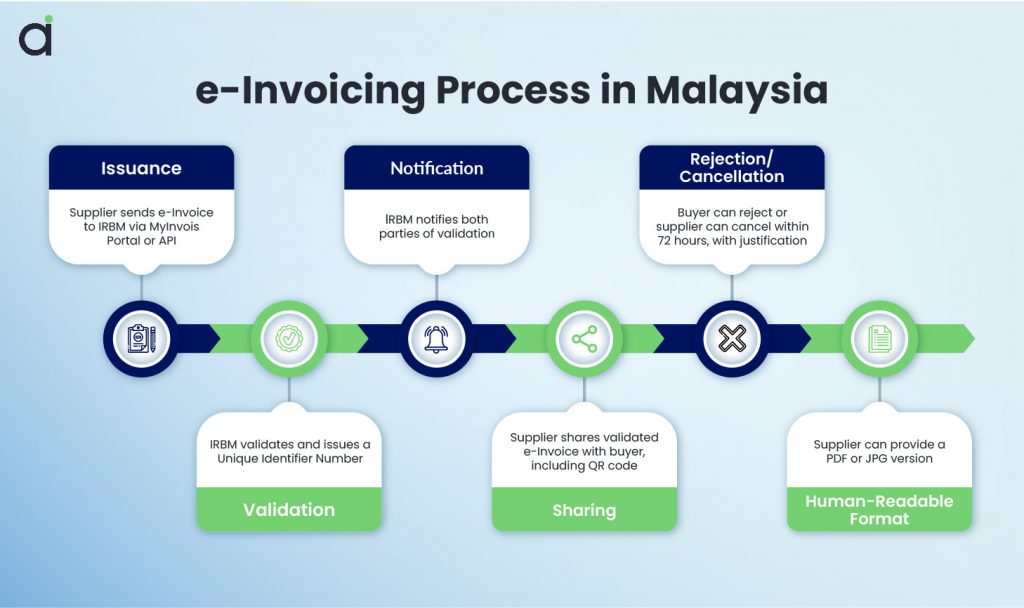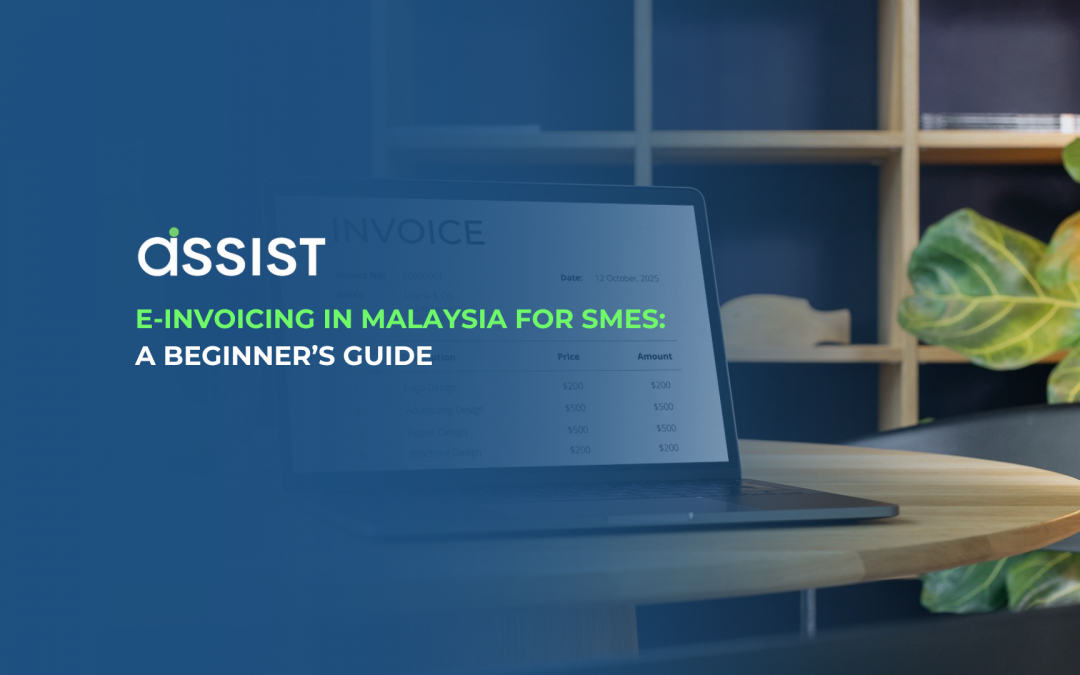In recent years, e-invoicing has gained significant momentum in Malaysia, particularly among small and medium enterprises (SMEs). With its potential to streamline business processes, reduce costs, and enhance tax compliance, e-invoicing is becoming a game changer for many businesses.
This guide explores what e-invoicing is, its benefits, and how Malaysian SMEs can implement this technology.
What is E-Invoicing?
E-invoicing (electronic invoicing) refers to the process of creating, transmitting, receiving, and storing invoices in a digital format. Unlike traditional paper-based invoicing, e-invoicing:
✅ Eliminates the need for physical paperwork
✅ Enables businesses to send invoices electronically
✅ Facilitates direct submission to customers and government agencies

Government Initiative in Malaysia
The Inland Revenue Board of Malaysia (IRBM) is driving the implementation of e-invoicing as a core strategy to:
✔ Modernize business practices across the nation
✔ Improve tax collection efficiency
✔ Enhance digital transformation, particularly for SMEs
Starting in 2024, e-invoicing is becoming mandatory for businesses, making it crucial for SMEs to prepare for compliance. You can find official updates on MyInvois, Malaysia’s government e-invoicing platform.
Why Should SMEs Adopt E-Invoicing?
1. Improved Efficiency & Cost Savings
📌 Reduces manual processes (printing, mailing, and filing invoices)
📌 Automates invoicing, reducing errors from manual data entry
📌 Saves time and money
2. Enhanced Tax Compliance
📌 Aligns with the Malaysian government’s move toward mandatory e-invoicing
📌 Ensures invoices meet local tax laws
📌 Simplifies Goods and Services Tax (GST) submissions
3. Environmental Benefits
📌 Cuts down on paper usage, reducing environmental impact
📌 Supports sustainability goals and eco-friendly business practices
4. Better Cash Flow Management
📌 Speeds up invoice processing and reduces payment delays
📌 Ensures faster payments, improving business cash flow
5. Improved Record-Keeping & Accessibility
📌 Electronic storage makes invoices easy to retrieve, track, and organize
📌 Facilitates audits and financial reviews
Steps to Implement E-Invoicing in Malaysia
1. Choose the Right E-Invoicing Solution
Select an e-invoicing system that:
✔ Aligns with your business needs
✔ Integrates with your accounting software
✔ Offers cost-effective features
✔ Ensures compliance with Malaysian tax laws
2. Get Familiar with Compliance Guidelines
✔ Stay updated with Malaysian government regulations
✔ Ensure invoices include required tax details, invoice numbers, and customer information
3. Integrate with Your Accounting Software
✔ Seamless integration simplifies financial record-keeping
✔ Choose a system that supports popular accounting platforms
4. Train Your Team
✔ Educate staff on e-invoicing processes
✔ Ensure smooth adoption and usage across departments
5. Monitor & Optimize
✔ Regularly review system performance
✔ Optimize workflows, update software, and ensure ongoing regulatory compliance
Why Choose Assist E-Invoice Software?
For Malaysian SMEs, Assist E-Invoice Software offers a user-friendly solution to simplify invoicing while ensuring full compliance with local tax regulations.
Key Features:
✅ Automated Invoice Generation – Reduces manual data entry & human error
✅ Real-time Tax Compliance – Ensures GST compliance in Malaysia
✅ Seamless Integration – Syncs with various accounting platforms
✅ Cloud-Based Solution – Access invoices from anywhere
✅ Customizable Templates – Create professional, branded invoices
📌 Assist E-Invoice Software is an excellent choice for SMEs looking to modernize invoicing while ensuring compliance.
Conclusion
E-invoicing offers numerous benefits for SMEs in Malaysia, from increased efficiency to better tax compliance. By adopting digital invoicing, businesses can stay ahead of the curve in a rapidly changing digital landscape. Choosing the right software, like Assist E-Invoice Software, can help simplify the transition, ensure compliance, and streamline your invoicing operations, making it a valuable tool for SMEs looking to thrive in the digital economy.
🚀 Now is the time for Malaysian SMEs to embrace digital invoicing and stay ahead in the evolving business landscape!
Click here to read more FAQs on Malaysia e-invoice.
Frequently Asked Questions (FAQ):
What is e-invoicing and how does it work?
E-invoicing is the process of electronically generating, sending, receiving, and storing invoices. It eliminates paper-based processes and allows seamless integration with accounting systems and tax authorities.
Is e-invoicing mandatory in Malaysia?
Yes, e-invoicing is becoming mandatory in Malaysia, starting in 2024. Businesses must comply with the guidelines set by the Inland Revenue Board of Malaysia (IRBM).
What are the benefits of e-invoicing for SMEs?
SMEs benefit from improved efficiency, cost savings, enhanced tax compliance, better cash flow management, and environmentally friendly practices.
How do I choose the right e-invoicing solution?
Choose a solution that integrates with your accounting software, meets tax compliance regulations, offers automation, and is cost-effective.
How can I ensure my business complies with e-invoicing regulations?
Stay updated with government regulations, integrate a compliant e-invoicing solution, and ensure your invoices contain all required tax details.
What is Assist E-Invoice Software and how can it help my business?
Assist E-Invoice Software is a cloud-based invoicing solution that automates invoicing, ensures GST compliance, integrates with accounting platforms, and provides easy access to invoices.


Recent Comments